Teen Dating Violence
Breadcrumb
Discover Awareness and Support for Teen Dating Violence
February is National Teen Dating Violence Awareness and Prevention Month (TDVAM). This is an issue that impacts everyone – not just teens – but their parents, teachers, friends, and communities as well. Together, we can raise the nation’s awareness about teen dating violence and promote safe, healthy relationships. You can help raise awareness using resources from the Love is Respect campaign.
But don't wait for a special month!
Discover an NNLM Reading Club book now and get the conversation started.
 Discover MedlinePlus
Discover MedlinePlus
MedlinePlus is a service of the National Library of Medicine, the largest biomedical library in the world. Use Medlineplus.gov anywhere, anytime, on any device - for free - to discover high-quality health and wellness information that is reliable, easy to understand, and free of advertising, in both English and Spanish.
Discover information on:
Also discover MyHeathfinder.gov to Talk to Your Kids About Sex and Healthy Relationships.
Discover NIH
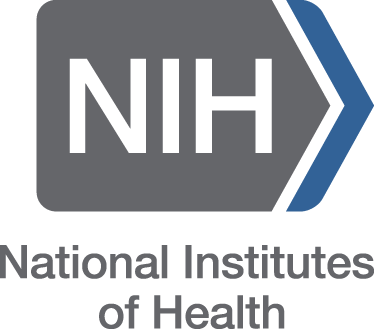 The National Institutes of Health (NIH), a part of the U.S. Department of Health and Human Services, is the nation’s medical research agency — making important discoveries that improve health and save lives. NIH is made up of 27 Institutes and Centers, each with a specific research agenda, often focusing on particular diseases or body systems.
The National Institutes of Health (NIH), a part of the U.S. Department of Health and Human Services, is the nation’s medical research agency — making important discoveries that improve health and save lives. NIH is made up of 27 Institutes and Centers, each with a specific research agenda, often focusing on particular diseases or body systems.
The primary NIH organization for research on Teen Health is the Eunice Kennedy Shriver National Institute of Child Health and Human Development.
Discover More
Teen dating violence, also called adolescent relationship abuse, is a serious public health problem. Studies show that approximately 10% of adolescents report being the victim of physical violence at the hands of an intimate partner during the previous year.
Nationwide, youth aged 12 to 19 experience the highest rates of rape and sexual assault. Girls are particularly vulnerable to experiencing violence in their relationships and are more likely to suffer long-term behavioral and health consequences, including suicide attempts, eating disorders, and drug use.
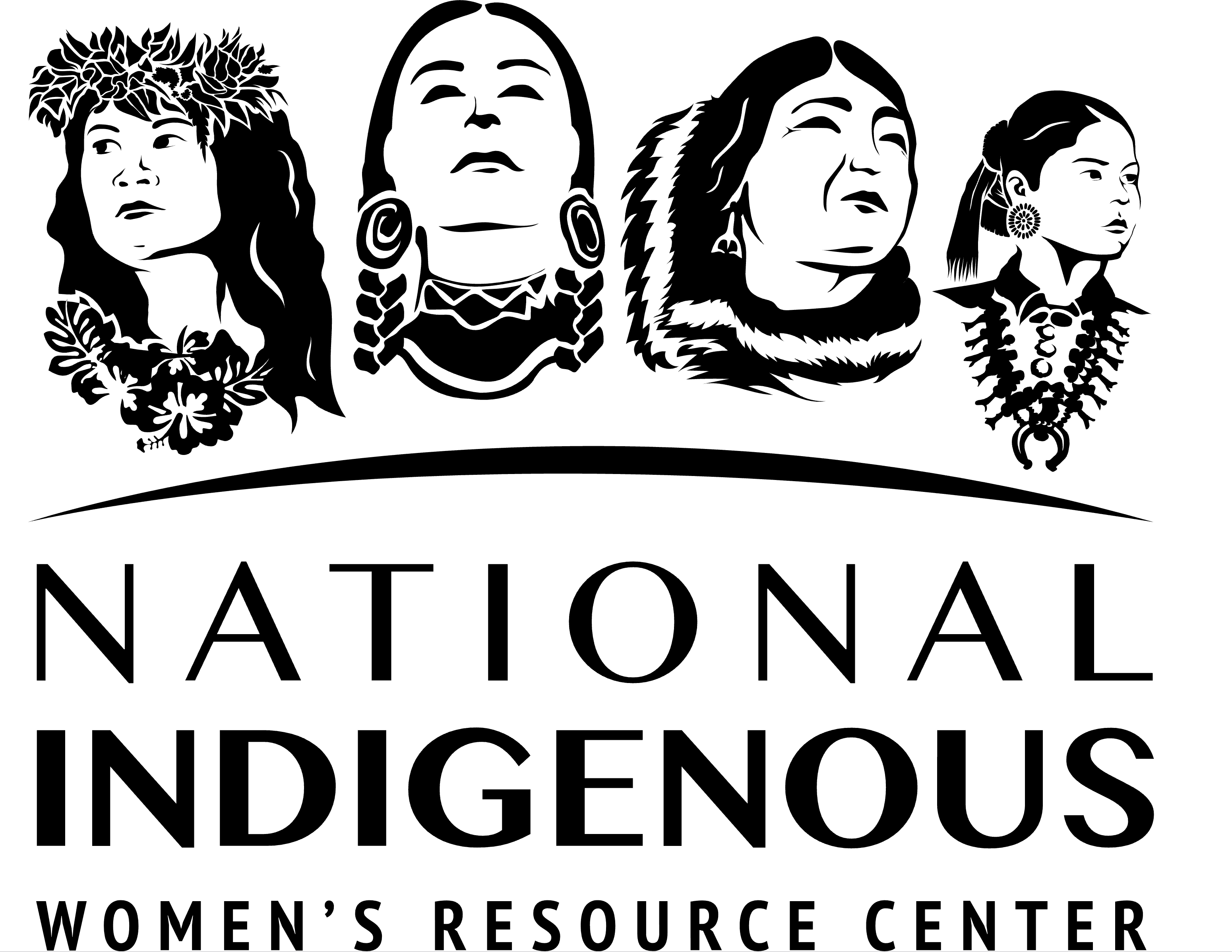
Charon Asetoyer and Lyn Archambeau discuss the prevention of Teen Dating Violence. A companion radio program to the Teen Dating Violence Prevention Curriculum.
Dating Matters®: Strategies to Promote Healthy Teen Relationships is a comprehensive teen dating violence prevention model developed by CDC to stop teen dating violence before it starts. Dating Matters is an evidence-based teen dating violence prevention model that includes prevention strategies for individuals, peers, families, schools, and neighborhoods. It focuses on teaching 11 to 14-year-olds healthy relationship skills before they start dating and reducing behaviors that increase the risk for dating violence, like substance abuse and sexual risk-taking. (PDF)
LoveIsRespect.Org is a special project of the National Domestic Violence Hotline funded through the Family Violence Prevention and Services Act Program. The organization can connect teens with local domestic violence advocates for crisis counseling and referrals. It also offers a live chat option for teens. For information, call 866.331.9474 or text LOVEIS to 22522.
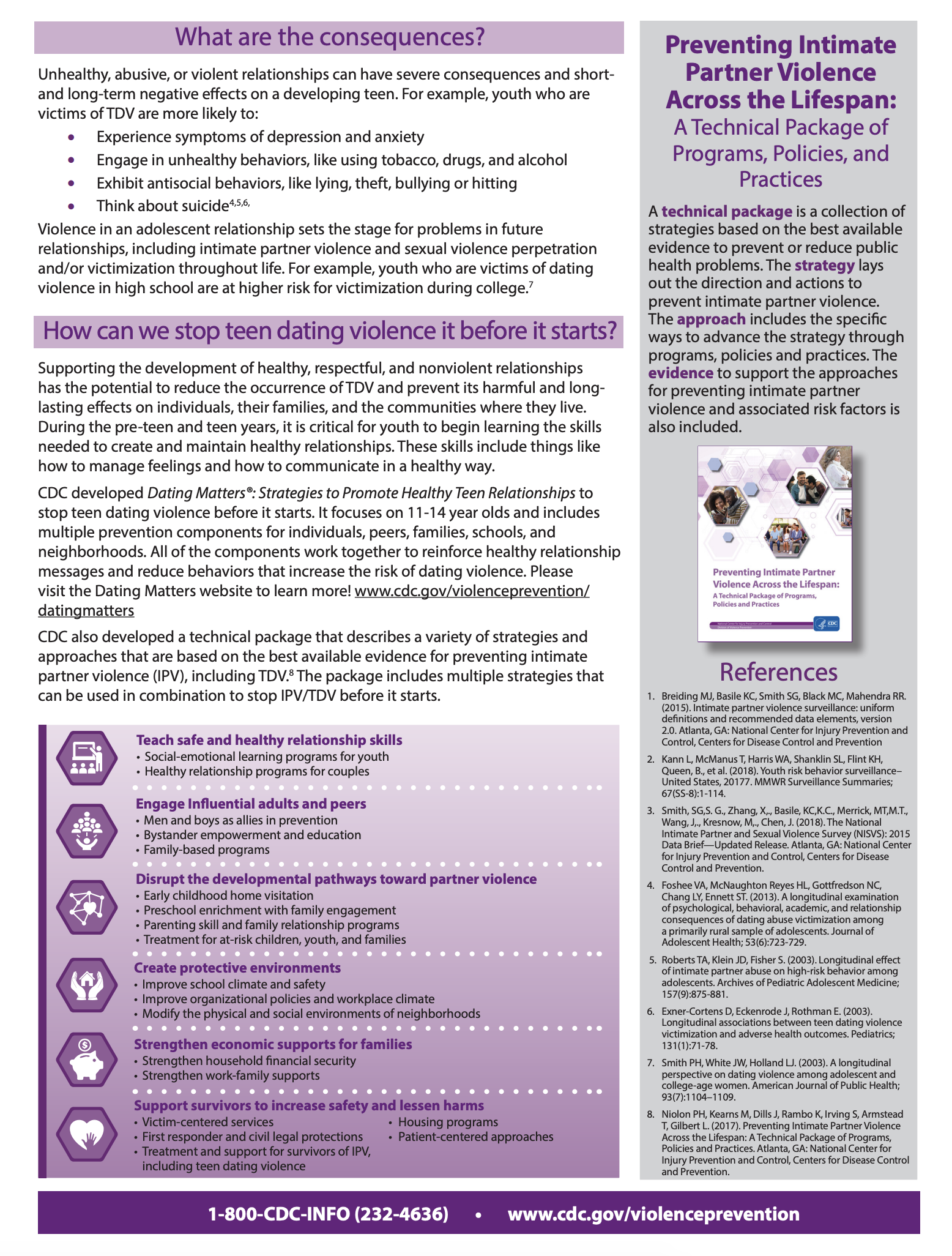
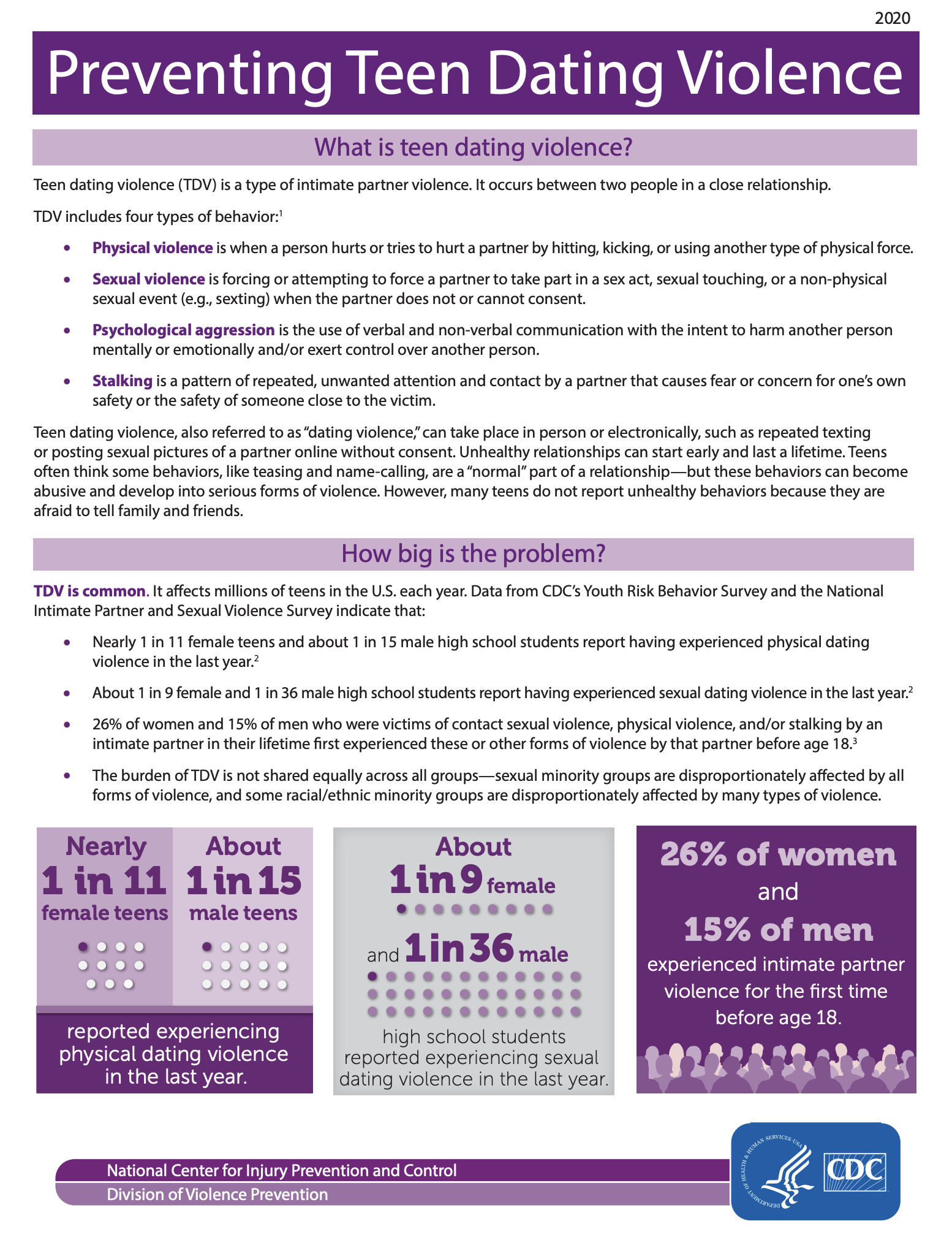
Preventing Teen Dating Violence Fact Sheet (PDF)
Runaway & Homeless Youth and Relationship Violence Toolkit Recognizing and understanding the intersection of runaway and homeless youth and intimate partner violence (including dating, domestic and sexual violence) is critical to creating meaningful services and effective intervention and prevention strategies for both homelessness and relationship abuse, and in creating partnerships between the programs working with youth at risk.
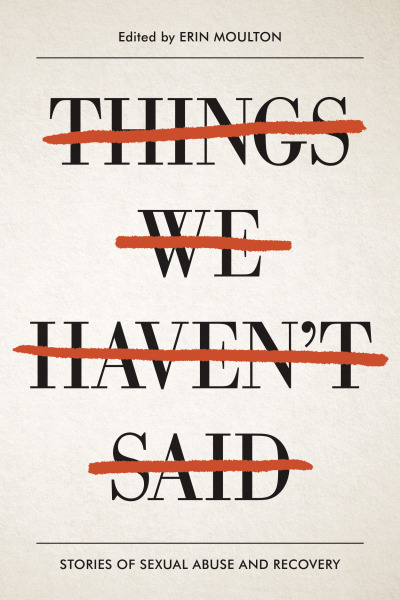
Things We Haven's Said: Stories of Sexual Abuse and Recovery | Edited by Erin Moulton | 2018 | 208 pages | Zest Books | ISBN: 978-1942186342 | Interest Level: Grade 8 - Grade 12 | WorldCat | ![]()
![]()
A collection of poems, essays, letters, and interviews written by a diverse group of adults who survived sexual violence as children and adolescents. This anthology is a resource to help teens upend stigma and create a better future.
Featured Books

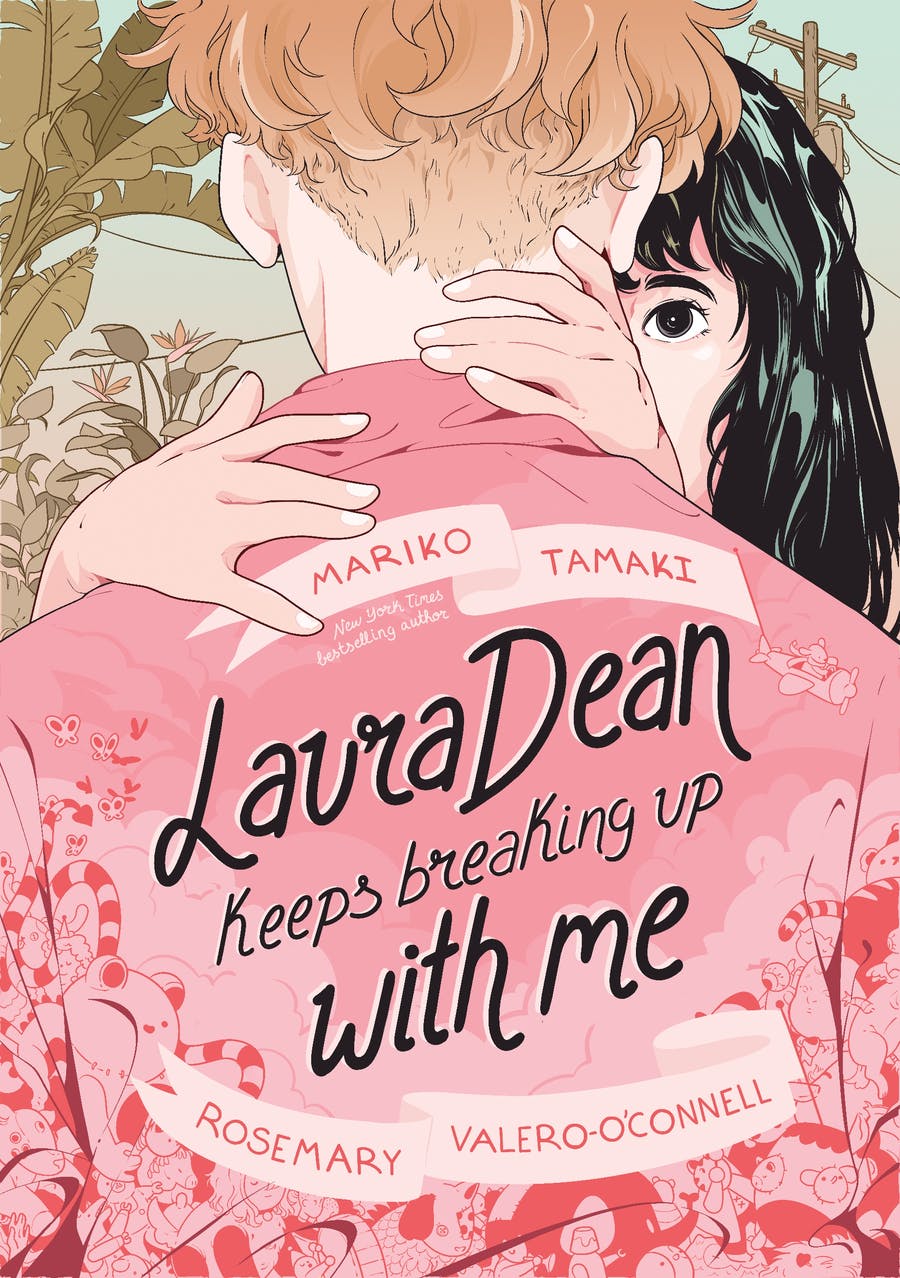

Terms of use: Network of the National Library of Medicine (NNLM) staff offer these health discussion resources for educational use. The materials included do not necessarily reflect the views or opinions of the author, publisher, or the sponsoring agencies of the National Library of Medicine (NLM) and the National Institutes of Health (NIH).

